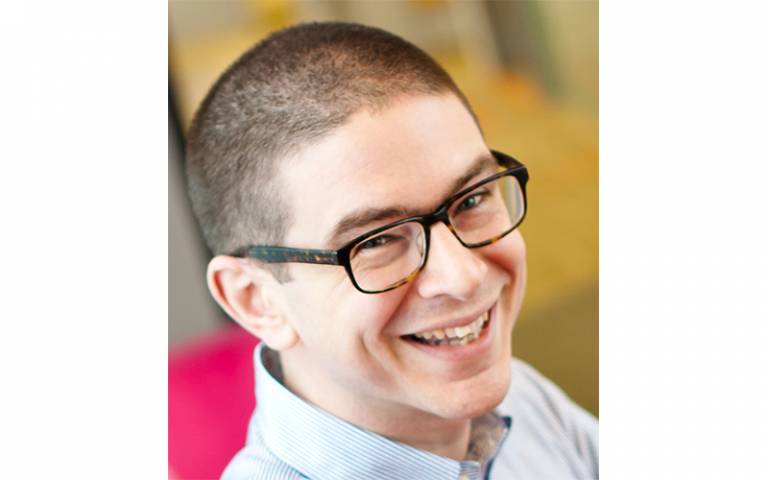UCL ISH welcomes Professor of Heritage Evidence, Foresight and Policy to the Institute
1 February 2018
Today, UCL ISH was delighted to welcome Richard Sandford as Professor of Heritage Evidence, Foresight and Policy to the Institute.

Richard leads the innovative Future Heritage research strand in UCL ISH, in partnership with Historic England, exploring the ways in which the role, practice and meaning of heritage may evolve into the next century, and developing practical tools to support heritage professionals to engage with the future in their work.
The research will focus both on future trajectories and threats to existing heritage and the nature of new forms of heritage. The partnership will engage with engineers, artists, designers and technologists and will articulate the need for policy-makers and heritage managers to develop ways of working with new forms of data and evidence as the basis for new approaches to heritage; and establish authentically participatory approaches to working with communities, volunteers and wider publics in understanding the part heritage should play in future society.
Richard has been working at the intersection of foresight, policy and research for the last fifteen years. He comes to UCL from the UK Civil Service, where he worked with strategy and policy teams across government to develop their capacity to engage with social and technological risks and issues emerging over the long term. Before joining the civil service Richard was based in Singapore, where he designed and facilitated foresight workshops on the future of work, education and innovation across Asia, the US and Europe, for government agencies, NGOs, and private companies.
As Research Fellow at the Institute for Adult Learning, Singapore, he established a futures programme of horizon scanning and scenario development, and worked with adult educators to describe possible futures for workplace learning. Prior to that, he was an Honorary Research Fellow at the Graduate School of Education in the University of Bristol, working primarily with Futurelab, a UK research group exploring innovation in education. His published research addresses the importance of context in accounts of possible futures, the relationship between education and the future, and the use of games and play to support learning.
 Close
Close

